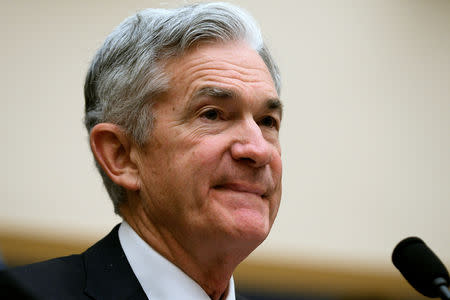What higher interest rates may mean for companies in 2019

As the Federal Reserve raises interest rates further and further away from crisis-era levels, investors remain worried about how companies and their stock prices might react.
One big concern is whether rising rates will make it less attractive for companies to buy back their own stock, which traditionally increases stock prices by reducing the number of shares outstanding.
Higher interest rates make cash a more attractive asset class thanks to higher rates on bank accounts and certificates of deposits.
“We forecast the S&P 500 will generate a modest single-digit absolute return in 2019. The risk-adjusted return will be less than half the long-term average,” wrote Goldman Sachs analysts in a note to clients on Tuesday. “Cash will represent a competitive asset class to stocks for the first time in many years.”
If companies can get a decent return by just holding onto the cash on their balance sheets, they may buy back less stock, which could dampen a powerful driver of the stock market’s gains over the past few years.
But not to worry, said market strategist Kevin Kelly, CEO of Benchmark Investments.
“I don’t think investors need to worry about interest rates impacting share buybacks,” Kelly said. “Interest rates are still historically low.”
Kelly thinks the incentive to buy back shares won’t be dampened by higher interest rates, but by the pressure from investors to strengthen corporate profit margins — a key concern as analysts start to sound the alarm on ‘peak earnings.’
“Buying back stock won’t increase a company’s margins,” Kelly said. “Increasing CAPEX spending and investing in the business will.”
Kelly points to Home Depot (HD), which is investing $1.2 billion in its supply chain.
“That $1.2 billion is better spent doing that than buying back shares,” he said. “CFOs are looking at their balance sheets and deciding where they can get the best return on their money. Reinvesting in the business is something that can pay off for multiple quarters and years.”
The impact of rising interest rates may affect the decisions of individual investors more so than companies, according to Kelly.
“If you’re an investor weighing a stock with just a 1% dividend yield, you may want to put your money into a short-term T-note with a 2.75% yield — especially amid tariff concerns and other worries facing stock investors,” Kelly noted.
Scott Gamm is a reporter at Yahoo Finance. Follow him on Twitter @ScottGamm.
Follow Yahoo Finance on Twitter, Facebook, Instagram, Flipboard, LinkedIn, and reddit.
More from Scott:
It will be tough for stocks to rally in 2019 without tech — but not impossible
These 2 forces could prompt companies to cut capital expenditures

